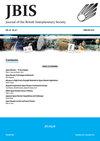Enabling Interplanetary Exploration for CubeSats with a Fully Chemical Propulsion System
Q4 Engineering
Jbis-Journal of the British Interplanetary Society
Pub Date : 2023-06-14
DOI:10.59332/jbis-076-04-0134
引用次数: 0
Abstract
Interplanetary CubeSat missions are currently becoming more popular, with a significant number of recently planned missions. The context of this paper is a Mars mission, starting from a parking orbit around Earth: the adoption of a chemical propulsion system for the Earth-Mars transfer phase is investigated, considering the recent technological developments for CubeSats. A trade-off of propulsion system type and propellant results in the choice of a mono-propellant system adopting the HAN-based propellant AF-M315E (ASCENT). The main challenge for the propulsion system is to fit inside a CubeSat standardised volume, which can range up to 24 U, for which the implementation of a suitable COTS micro-pump is considered. Finally, the complete architecture and design of the propulsion system is presented. This work demonstrates the feasibility of adopting full chemical propulsion for an interplanetary CubeSat mission, with consequent advantages in terms of transfer time and required power, at the cost of relatively small mass and volume left for the other subsystems. Even better results can be expected for interplanetary missions requiring slightly lower ΔV budgets, such as Near Earth Objects exploration or asteroid fly-by missions. Keywords: CubeSat, Chemical Propulsion, Green Mono-propellant, Interplanetary Mission, Mars Exploration利用全化学推进系统实现立方体卫星行星际探索
星际立方体卫星任务目前正变得越来越受欢迎,最近计划了大量任务。本文的背景是火星任务,从地球周围的停车轨道开始:考虑到立方体卫星的最新技术发展,研究了地球-火星转移阶段采用化学推进系统。在对推进系统类型和推进剂进行权衡后,最终选择采用基于han的推进剂AF-M315E (ASCENT)的单推进剂系统。推进系统面临的主要挑战是要适应CubeSat的标准化体积,该体积的范围可达24u,为此考虑了合适的COTS微型泵的实施。最后,给出了推进系统的整体结构和设计。这项工作证明了在星际立方体卫星任务中采用全化学推进的可行性,在转移时间和所需功率方面具有相应的优势,而为其他子系统留下的质量和体积相对较小。对于行星际任务,例如近地天体探测或小行星飞越任务,需要稍微低一点的ΔV预算,甚至可以预期更好的结果。关键词:立方体卫星,化学推进,绿色单推进剂,行星际任务,火星探测
本文章由计算机程序翻译,如有差异,请以英文原文为准。
求助全文
约1分钟内获得全文
求助全文
来源期刊

Jbis-Journal of the British Interplanetary Society
Earth and Planetary Sciences-Space and Planetary Science
CiteScore
0.70
自引率
0.00%
发文量
0
期刊介绍:
The Journal of the British Interplanetary Society (JBIS) is a technical scientific journal, first published in 1934. JBIS is concerned with space science and space technology. The journal is edited and published monthly in the United Kingdom by the British Interplanetary Society.
Although the journal maintains high standards of rigorous peer review, the same with other journals in astronautics, it stands out as a journal willing to allow measured speculation on topics deemed to be at the frontiers of our knowledge in science. The boldness of journal in this respect, marks it out as containing often speculative but visionary papers on the subject of astronautics.
 求助内容:
求助内容: 应助结果提醒方式:
应助结果提醒方式:


